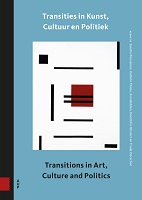Chapter Revolt: The sense and non-sense of Kristeva
| dc.contributor.author | Ftouni, Layal | |
| dc.contributor.author | Górska, Magdalena | |
| dc.contributor.author | Mascat, Jamila | |
| dc.date.accessioned | 2023-10-12T13:14:02Z | |
| dc.date.available | 2023-10-12T13:14:02Z | |
| dc.date.issued | 2023 | |
| dc.identifier | ONIX_20231012_9789048560110_13 | |
| dc.identifier.uri | https://library.oapen.org/handle/20.500.12657/76687 | |
| dc.description.abstract | Revolt, for Julia Kristeva, is not as a singular socio-political moment of breaking away, but as Rosemarie Buikema puts it, “a process of movement and repetition” (Buikema, 2020, 6), “a reversal, a relocation, a transformation, but also a return” (7). The article returns to Kristeva’s original approach to revolt. It will first retrace Kristeva’s peculiar conceptualisation of this notion; particularly focusing on its psychoanalytical dimension vis-a-vis ‘the semiotic’ and ‘the symbolic’. The article further discuss the limits of revolt’s intimate framing and the shortfalls of what we argue is Kristeva’s exorcism of the political from the spirit of revolt. | |
| dc.language | English | |
| dc.subject.other | revolt | |
| dc.subject.other | symbolic | |
| dc.subject.other | semiotic | |
| dc.subject.other | psychoanalysis | |
| dc.subject.other | politics | |
| dc.title | Chapter Revolt: The sense and non-sense of Kristeva | |
| dc.type | chapter | |
| oapen.identifier.doi | 10.5117/9789048560110_ftouni | |
| oapen.relation.isPublishedBy | dd3d1a33-0ac2-4cfe-a101-355ae1bd857a | |
| oapen.relation.isPartOfBook | 95ba63c0-4a4a-4684-a56c-73ba347aa51b | |
| oapen.relation.isFundedBy | b586072e-2e5d-469f-8332-217c0beb5b08 | |
| oapen.relation.isFundedBy | 4d864437-7722-4c66-b80f-140a98d4bca9 | |
| oapen.relation.isbn | 9789048560110 | |
| oapen.relation.isbn | 9789048560127 | |
| oapen.pages | 8 | |
| oapen.place.publication | Amsterdam | |
| oapen.grant.number | [...] | |
| oapen.grant.number | [...] |

